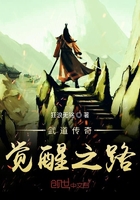Meanwhile Morgan was coming on--led by the two videttes in gray--Daniel Dean and Rebel Jerry Dillon--coming on to meet Kirby Smith in Lexington after that general had led the Bluegrass into the Confederate fold. They were taking short cuts through the hills now, and Rebel Jerry was guide, for he had joined Morgan for that purpose. Jerry had long been notorious along the border. He never gave quarter on his expeditions for personal vengeance, and it was said that not even he knew how many men he had killed. Every Morgan's man had heard of him, and was anxious to see him; and see him they did, though they never heard him open his lips except in answer to a question. To Dan he seemed to take a strange fancy right away, but he was as voiceless as the grave, except for an occasional oath, when bush-whackers of Daws Dillon's ilk would pop at the advance guard--sometimes from a rock directly overhead, for chase was useless. It took a roundabout climb of one hundred yards to get to the top of that rock, so there was nothing for videttes and guards to do but pop back, which they did to no purpose. On the third day, however, after a skirmish in which Dan had charged with a little more dare-deviltry than usual, the big Dillon ripped out an oath of protest. An hour later he spoke again:
"I got a brother on t'other side."
Dan started. "Why, so have I," he said. "What's your brother with?""Wolford's cavalry."
"That's curious. So was mine--for a while. He's with Grant now." The boy turned his head away suddenly.
"I might meet him, if he were with Wolford now," he said, half to himself, but Jerry heard him and smiled viciously.
"Well, that's what I'm goin' with you fellers fer--to meet mine.""What!" said Dan, puzzled.
"We've been lookin' fer each other sence the war broke out. I reckon he went on t'other side to keep me from killin' him."Dan shrank away from the giant with horror; but next day the mountaineer saved the boy's life in a fight in which Dan's chum--gallant little Tom Morgan--lost his; and that night, as Dan lay sleepless and crying in his blanket, Jerry Dillon came in from guard-duty and lay down by him.
"I'm goin' to take keer o' you."
"I don't need you," said Dan, gruffly, and Rebel Jerry grunted, turned over on his side and went to sleep. Night and day thereafter he was by the boy's side.
A thrill ran through the entire command when the column struck the first Bluegrass turnpike, and a cheer rang from front to rear. Near Midway, a little Bluegrass town some fifteen miles from Lexington, a halt was called, and another deafening cheer arose in the extreme rear and came forward like a rushing wind, as a coal-black horse galloped the length of the column--its rider, hat in hand, bowing with a proud smile to the flattering storm--for the idolatry of the man and his men was mutual--with the erect grace of an Indian, the air of a courtier, and the bearing of a soldier in every line of the six feet and more of his tireless frame. No man who ever saw John Morgan on horseback but had the picture stamped forever on his brain, as no man who ever saw that coal-black horse ever forgot Black Bess. Behind him came his staff, and behind them came a wizened little man, whose nickname was "Lightning"--telegraph operator for Morgan's Men. There was need of Lightning now, so Morgan sent him on into town with Dan and Jerry Dillon, while he and Richard Hunt followed leisurely.
The three troopers found the station operator seated on the platform--pipe in mouth, and enjoying himself hugely. He looked lazily at them.
"Call up Lexington," said Lightning, sharply.
"Go to hell!" said the operator, and then he nearly toppled from his chair.
Lightning, with a vicious gesture, had swung a pistol on him.
"Here--here!" he gasped, "what'd you mean?"
"Call up Lexington," repeated Lightning. The operator seated himself.
"What do you want in Lexington?" he growled.
"Ask the time of day?" The operator stared, but the instrument clicked.
"What's your name?" asked Lightning.
"Woolums."
"Well, Woolums, you're a 'plug.' I wanted to see how you handled the key. Yes, Woolums, you're a plug."Then Lightning seated himself, and Woolums' mouth flew open--Lightning copied his style with such exactness. Again the instrument clicked and Lightning listened, smiling:
"Will there be any danger coming to Midway?" asked a railroad conductor in Lexington. Lightning answered, grinning:
"None. Come right on. No sign of rebels here." Again a click from Lexington.
"General Ward orders General Finnell of Frankfort to move his forces. General Ward will move toward Georgetown, to which Morgan with eighteen hundred men is marching."Lightning caught his breath--this was Morgan's force and his intention exactly. He answered:
"Morgan with upward of two thousand men has taken the road to Frankfort. This is reliable." Ten minutes later, Lightning chuckled.
"Ward orders Finnell to recall his regiment to Frankfort."Half an hour later another idea struck Lightning. He clicked as though telegraphing from Frankfort:
"Our pickets just driven in. Great excitement. Force of enemy must be two thousand."Then Lightning laughed. "I've fooled 'em," said Lightning.
There was turmoil in Lexington. The streets thundered with the tramp of cavalry going to catch Morgan. Daylight came and nothing was done--nothing known. The afternoon waned, and still Ward fretted at head-quarters, while his impatient staff-sat on the piazza talking, speculating, wondering where the wily raider was. Leaning on the campus-fence near by were Chadwick Buford and Harry Dean.















